Table of Contents
Explore the Ministry of Hajj and Umrah’s crucial role in facilitating transformative pilgrimages to Mecca and Medina. Discover services, regulations, and how to embark on your spiritual journey. Your gateway to a sacred experience awaits.
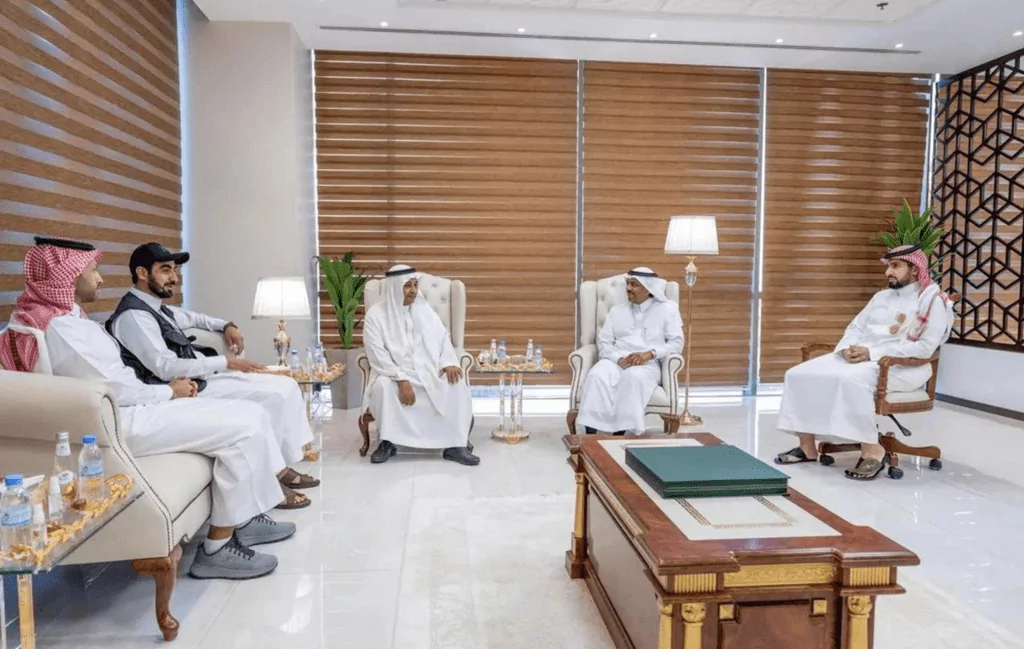
The Ministry of Hajj and Umrah stands as an unwavering beacon of faith and devotion for millions of Muslims across the globe. Rooted in the heart of Saudi Arabia, it serves as the guardian of one of the Five Pillars of Islam, the sacred pilgrimage to the holy cities of Mecca and Medina. In this article, we embark on a profound journey to unravel the essence of this Ministry and the pivotal role it plays in the lives of devout Muslims.
For centuries, the call to embark on the Hajj pilgrimage has echoed through the sands of time, summoning believers from every corner of the world to answer the divine invitation. The Ministry of Hajj and Umrah serves as the earthly custodian of this spiritual odyssey, ensuring that the faithful can undertake this transformative journey with ease and unwavering devotion.
As we delve deeper into the intricate tapestry of this Ministry’s operations, we will uncover its multifaceted responsibilities, steadfast commitment to regulations, and unwavering dedication to providing pilgrims with invaluable support. From the issuance of visas that grant access to the sacred lands to the meticulous management of transportation, accommodation, and healthcare services, the Ministry’s benevolent hand guides pilgrims through the spiritual labyrinth of Hajj and Umrah.
But the Ministry’s significance extends beyond mere logistics. It is a bastion of spiritual enrichment, a beacon of hope, and a symbol of unity for the global Muslim community. Pilgrims who embark on this sacred journey experience a profound transformation of the soul, and the Ministry plays a pivotal role in facilitating this life-altering experience.
As we venture deeper into the pages of this article, we will explore the Ministry’s role in safeguarding the timeless rituals of Hajj and Umrah, each step laden with symbolism and meaning. From the circumambulation of the Kaaba to the symbolic casting of stones at the pillars representing temptation, every ritual is a testament to the pilgrim’s unwavering faith.
So, join us on this enlightening journey, as we unveil the inner workings of the Ministry of Hajj and Umrah, and discover how it continues to uphold the traditions, values, and spirituality that have defined the Islamic faith for centuries. Your pilgrimage to knowledge begins here, where the Ministry of Hajj and Umrah serves as a guiding light, illuminating the path of devotion and spiritual fulfillment for all who seek it.
Responsibilities of the Ministry
The Ministry of Hajj and Umrah is an institution of profound significance in the Islamic world, tasked with multifaceted responsibilities that extend far beyond administrative duties. Its mission is deeply rooted in serving the spiritual aspirations of millions of Muslims who yearn to embark on the sacred pilgrimage to Mecca and Medina.
1. Pilgrimage Management
At the heart of the Ministry’s responsibilities lies the intricate task of pilgrimage management. Each year, as the Islamic month of Dhu al-Hijjah approaches, the Ministry orchestrates a logistical symphony of unparalleled complexity. Their meticulous planning encompasses every facet of the pilgrimage, from the moment pilgrims set foot in Saudi Arabia until their safe return home.
Transportation: The Ministry oversees the transportation of pilgrims from various corners of the world to the holy cities. This includes coordinating flights, buses, and other modes of travel, ensuring that pilgrims arrive safely and are transported seamlessly between holy sites.
Accommodation: One of the Ministry’s paramount duties is to provide pilgrims with comfortable and affordable accommodations. From the grandeur of luxury hotels to the simplicity of dormitories, their offerings cater to diverse preferences and budgets, ensuring that every pilgrim can focus on their spiritual journey without concern for their lodging.
Crowd Control: Managing the sheer volume of pilgrims is a monumental task. The Ministry employs sophisticated crowd control measures, carefully designed to prevent stampedes and ensure the safety of the faithful during crucial rituals, such as the Stoning of the Devil.
2. Regulation and Compliance
To maintain the sanctity and safety of the pilgrimage, the Ministry enforces strict regulations that all pilgrims must adhere to. These regulations are not mere formalities; they are the pillars upon which the pilgrimage experience stands.
Dress Code: Pilgrims are required to wear the Ihram, a simple white garment, during their journey. This dress code symbolizes purity, humility, equality, and unity among all Muslims, erasing distinctions of class, nationality, or social status.
Waste Management: To preserve the cleanliness and sanctity of the holy sites, the Ministry enforces stringent waste management protocols. Pilgrims are expected to dispose of their waste responsibly, a small but significant act of reverence for the sacred land.
Security: In a world where security concerns are paramount, the Ministry takes no chances. They deploy a significant number of security personnel to maintain order and protect pilgrims from potential threats or disruptions, ensuring that the pilgrimage remains a safe and spiritual journey.
3. Visa Services
For many, the journey to Mecca and Medina begins with the issuance of a visa from the Ministry. The Ministry has streamlined this process, making it accessible to Muslims worldwide. Pilgrims must provide the necessary documentation and follow the Ministry’s guidelines for a smooth visa application.
4. Support and Assistance
The Ministry understands that the pilgrimage can be a physically and emotionally demanding journey. To aid pilgrims in their spiritual quest, they provide a range of support services:
Medical Services: Health concerns are a natural part of any pilgrimage. The Ministry offers medical services to pilgrims, ensuring that they have access to healthcare facilities and assistance when needed.
Guidance on Rituals: Understanding the significance of each ritual is vital for a meaningful pilgrimage. The Ministry offers educational resources, including written and visual materials, to help pilgrims comprehend the rituals’ spiritual depth.
The Ministry of Hajj and Umrah’s responsibilities extend far beyond logistics and regulations. They serve as custodians of faith, guardians of tradition, and companions on the spiritual journey. As we delve deeper into the heart of the pilgrimage experience, it becomes evident that the Ministry’s dedication is not merely administrative; it’s a profound commitment to the spiritual enrichment of the global Muslim community.
The Essence of Hajj and Umrah
Hajj and Umrah are more than just religious pilgrimages; they are profound spiritual journeys that hold deep significance in the lives of Muslims. Each year, millions of faithful embark on these sacred voyages to the holy cities of Mecca and Medina, seeking to fulfill their religious duties and forge a deeper connection with their faith.
Hajj: A Once-in-a-Lifetime Journey
Hajj is often described as the journey of a lifetime, a religious obligation for every Muslim who is physically and financially capable of undertaking it. It occurs annually during the Islamic month of Dhu al-Hijjah and follows in the footsteps of the Prophet Ibrahim (Abraham) and his family.
Rituals of Hajj
- Tawaf: Pilgrims begin their journey with the Tawaf, the circumambulation of the Kaaba, the most sacred structure in Islam. This act of walking seven times around the Kaaba symbolizes unity, as Muslims from all corners of the world come together in devotion.
- Sai: Following the Tawaf, pilgrims walk briskly between the hills of Safa and Marwah, reenacting Hagar’s search for water for her son, Isma’il. This ritual signifies perseverance and trust in Allah’s providence.
- Arafat: One of the most significant days of Hajj is spent on the plains of Arafat, where pilgrims stand in prayer, seeking forgiveness and supplicating to Allah. It’s a day of intense spiritual reflection and self-purification.
- Stoning of the Devil: Pilgrims symbolically cast stones at pillars representing Satan’s temptation. This ritual symbolizes the rejection of temptation and the reaffirmation of faith in Allah.
- Sacrifice: As a culmination of the pilgrimage, pilgrims offer an animal sacrifice, typically a goat or sheep. This act symbolizes obedience to Allah’s command and gratitude for His blessings.
Umrah: A Year-Round Spiritual Retreat
While Hajj is obligatory and has specific dates, Umrah is a recommended pilgrimage that can be undertaken at any time of the year. It involves a set of rituals similar to Hajj but on a smaller scale. Umrah provides an opportunity for Muslims to cleanse their souls and seek spiritual renewal.
Rituals of Umrah
- Ihram: Before entering Mecca, pilgrims enter a state of consecration known as Ihram. They wear special white garments and recite the Talbiyah, a declaration of their intention to perform Umrah. Ihram symbolizes purity and humility.
- Tawaf and Sai: Pilgrims perform the circumambulation around the Kaaba and the brisk walk between Safa and Marwah, just as they do during Hajj.
- Tahallul: After completing the rituals, pilgrims shave or trim their hair. This act signifies humility and purification.
Both Hajj and Umrah hold immense spiritual significance, offering pilgrims an opportunity to seek forgiveness, cleanse their souls, and draw closer to Allah. The rituals are laden with symbolism and provide a profound sense of unity with fellow Muslims from around the world.
These sacred journeys are not just physical acts of worship; they are transformative experiences that leave an indelible mark on the hearts and minds of pilgrims. Through Hajj and Umrah, Muslims fulfill their religious obligations and, in the process, discover a deeper connection to their faith and a profound sense of spiritual fulfillment. The Ministry of Hajj and Umrah stands as their steadfast companion on these transformative voyages, guiding them through every step of their remarkable odyssey.
Planning Your Pilgrimage with the Ministry
Undertaking the Hajj or Umrah pilgrimage is a deeply spiritual and life-changing journey, and meticulous planning is key to ensuring a smooth and enriching experience. The Ministry of Hajj and Umrah, with its unwavering commitment to serving the faithful, plays a pivotal role in helping you navigate the complexities of this sacred voyage. Here’s a closer look at how you can plan your pilgrimage with their invaluable assistance:
Obtaining a Visa
Your journey to the holy cities of Mecca and Medina begins with obtaining a visa, and the Ministry simplifies this crucial process. They have streamlined visa applications to make them accessible to Muslims worldwide. Here’s what you need to know:
- Online Portal: The Ministry provides an online portal through which you can initiate your visa application. This digital platform is designed to facilitate the application process, making it more efficient and accessible.
- Authorized Travel Agents: Additionally, the Ministry collaborates with authorized travel agents in various countries. These agents are well-versed in the visa application process and can guide you through it step by step. Their expertise ensures that your application is accurate and complete.
- Documentation: Ensure that you have all the required documentation, including a valid passport, photographs, and any other specific documents requested by the Ministry. Missing or incomplete documents can delay the process.
- Guidelines: It’s crucial to familiarize yourself with the Ministry’s guidelines for visa applications. These guidelines provide detailed information on eligibility criteria, deadlines, and any special requirements.
Booking Accommodation
Once you have secured your visa, the next step is to arrange accommodation for your pilgrimage. The Ministry offers a range of accommodation options to cater to the diverse preferences and budgets of pilgrims:
- Luxury Hotels: For those seeking a more comfortable and luxurious experience, the Ministry provides access to high-end hotels near the holy sites. These hotels offer convenience and exceptional amenities.
- Affordable Lodgings: If you are on a budget, the Ministry ensures that there are affordable lodging options available. These lodgings may be simpler, but they provide a comfortable and cost-effective stay.
- Dormitories: For those who prioritize communal living and affordability, dormitories are also available. Pilgrims share accommodations in dormitory-style settings, fostering a sense of community.
The Ministry’s role in facilitating accommodations is pivotal, as it ensures that you have a place to stay that meets your needs and preferences during your spiritual journey.
Transportation
Travel logistics can be a significant concern for pilgrims, but the Ministry of Hajj and Umrah has it well in hand. Their efficient management of transportation services ensures that you can focus entirely on your spiritual journey without worrying about travel arrangements:
- Flights: The Ministry coordinates flights to Saudi Arabia from various countries, ensuring that pilgrims arrive safely and efficiently. This includes arranging departure and arrival times that align with the pilgrimage schedule.
- Ground Transportation: Once in Saudi Arabia, the Ministry manages ground transportation, including buses, to transport pilgrims between holy sites. Their meticulous planning helps minimize travel-related stress and ensures you reach each destination in a timely manner.
- Accessibility: The Ministry places a strong emphasis on accessibility for all pilgrims. They provide transportation options that accommodate individuals with special needs, ensuring that every believer can participate in the pilgrimage.
Health and Safety
Your well-being during the pilgrimage is of paramount importance, and the Ministry takes extensive measures to ensure a safe and healthy experience:
- Medical Services: The Ministry provides access to medical services and facilities for pilgrims. In the event of illness or injury, you can receive prompt medical attention. It’s advisable to carry any necessary medications and medical records with you.
- Health Guidelines: To protect your health and the health of fellow pilgrims, the Ministry issues health guidelines. These guidelines may include recommendations on vaccinations and other preventive measures.
- Safety Protocols: Pilgrimage sites can be crowded, and safety is a top concern. The Ministry deploys security personnel to maintain order, protect pilgrims from potential threats, and ensure a secure environment throughout the journey.
Planning your pilgrimage with the Ministry of Hajj and Umrah means that you are not alone on this spiritual quest. Their comprehensive services, from visa assistance to travel logistics and health guidance, are designed to make your pilgrimage as smooth, safe, and spiritually enriching as possible. It’s a testament to their commitment to serving the global Muslim community and ensuring that every believer has the opportunity to embark on this sacred odyssey with confidence and devotion.
Ministry of Hajj and Umrah: Regulations and Compliance
To preserve the sanctity, safety, and spiritual essence of the Hajj and Umrah pilgrimages, the Ministry of Hajj and Umrah enforces a set of rigorous regulations and compliance measures. These regulations are not mere formalities; they are the bedrock upon which the pilgrim’s journey is built, ensuring that each sacred act is performed with the utmost reverence and order.
Dress Code
One of the most visible signs of compliance with the pilgrimage’s sacred nature is the dress code, known as the “Ihram.” The Ministry of Hajj and Umrah oversees and enforces this aspect with great diligence. Pilgrims are required to wear the Ihram attire, a simple two-piece garment, during their journey.
Significance of the Ihram: This white, seamless attire holds profound symbolism. It represents purity, equality, and humility. Every pilgrim, regardless of their background or status, is dressed in the same simple garb, reinforcing the idea of equality and unity in the eyes of Allah.
The enforcement of the Ihram dress code is a visual manifestation of the Ministry’s commitment to maintaining the essential values of the pilgrimage.
Crowd Control
The Ministry understands that the Hajj and Umrah attract millions of pilgrims from around the world. The sheer volume of pilgrims can pose significant challenges, particularly during specific rituals. To address this, they implement meticulous crowd control measures:
Safety during Rituals: Certain rituals, such as the Stoning of the Devil, can be particularly crowded and intense. To mitigate the risk of stampedes or accidents, the Ministry deploys trained personnel and employs advanced crowd control techniques.
Designated Routes: Pilgrims are guided through designated routes and entry points to various holy sites, ensuring a controlled and organized flow of people. This meticulous planning minimizes congestion and ensures the safety of all pilgrims.
Waste Management
Preserving the cleanliness and sanctity of the holy sites is of utmost importance. The Ministry enforces strict waste management protocols, requiring pilgrims to dispose of their waste responsibly:
Environmental Stewardship: Proper waste disposal is not only a matter of hygiene but also a reflection of the deep respect and reverence for the sacred land. Pilgrims are expected to adhere to waste disposal guidelines, ensuring that the holy sites remain untarnished.
Sanitary Facilities: The Ministry provides clean and well-maintained sanitary facilities to facilitate proper waste disposal. These facilities are strategically placed to serve the needs of pilgrims efficiently.
Security
In an era where security concerns are paramount, the Ministry leaves no room for compromise. They deploy a significant number of security personnel to maintain order, protect pilgrims from potential threats, and ensure a secure environment throughout the pilgrimage:
Vigilance: Security personnel are trained to be vigilant, monitoring pilgrim movements and identifying any unusual or potentially unsafe situations. Their presence serves as a deterrent to any potential disruptions.
Coordination: The Ministry works closely with local and international security agencies to ensure seamless coordination and information sharing. This collaboration enhances the overall security posture during the pilgrimage.
Emergency Response: In the event of emergencies or crises, the Ministry has robust response mechanisms in place to protect and assist pilgrims. This includes well-coordinated evacuation plans and communication protocols.
The Ministry’s commitment to regulations and compliance extends far beyond bureaucratic requirements; it is an embodiment of their dedication to preserving the spiritual integrity and safety of the Hajj and Umrah pilgrimages. Through meticulous oversight and unwavering commitment to these regulations, they ensure that each pilgrim’s journey is marked by reverence, order, and the profound spiritual experience that these sacred voyages are meant to be.

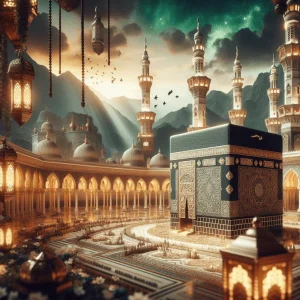
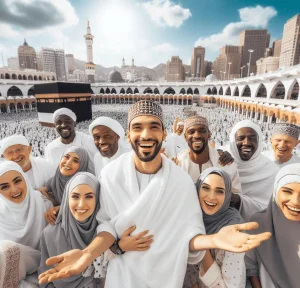
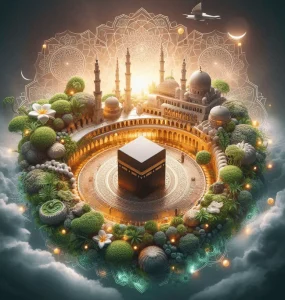
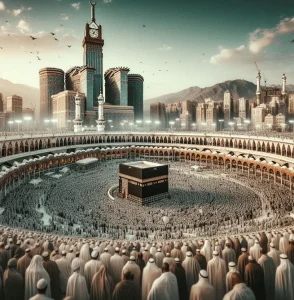
More Stories
The Ultimate Guide to Securing Your Hajj Visa with Confidence and Ease
Unlock the Vital Importance of Mecca for Lasting Wellness and Inner Peace
The Glorious Truth: Exploring the Majestic Essence of the Kaaba Islam Definition